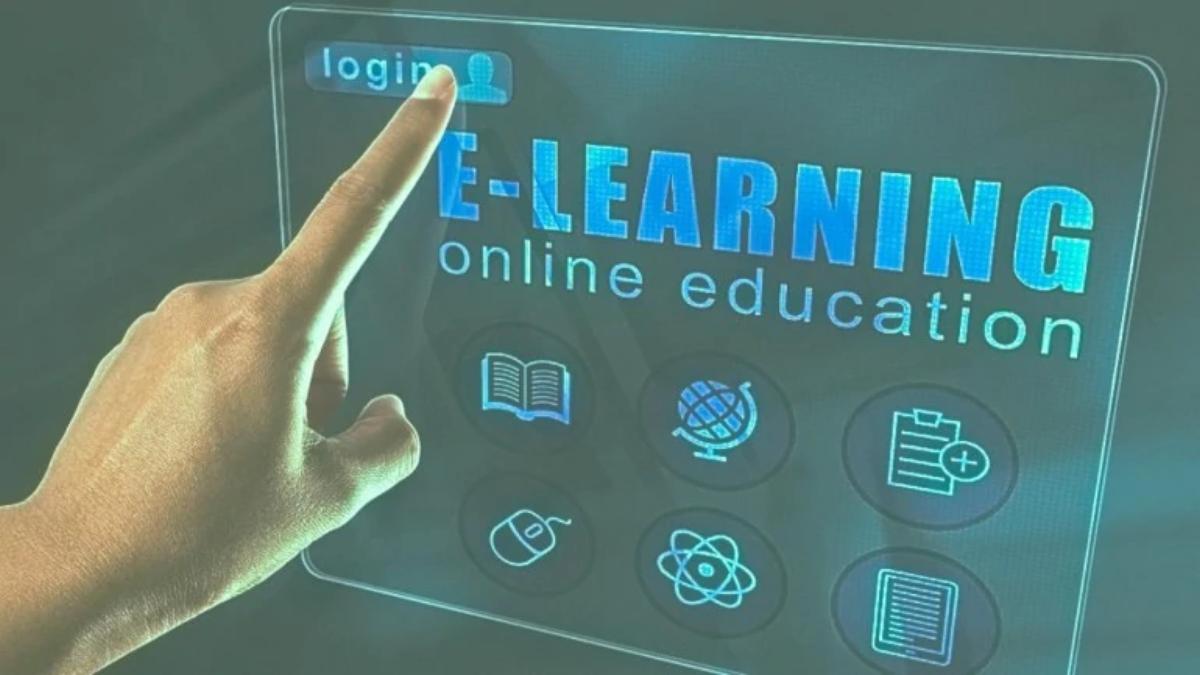New Delhi: For some time, students had been facing trouble shifting back to offline education mode, but now as the number of Covid cases are on the rise again, they are back to the online mode. According to experts, the online mode of education can have a long-lasting impact on the students’ health.
Nishant Agarwal, Founder, Proctur.com, told The Sunday Guardian: “Online learning offers students the opportunity to learn with the help of audio/visual aids such as videos, animations, presentations, etc. which makes it easier for them to wrap their head around concepts that are otherwise difficult to visualize. This way, online learning tools help to reduce the stress that a student would face trying to understand difficult concepts on their own. Besides this, I believe that educational institutions should develop a framework for monitoring students’ mental health and provide assistance.”
Vinay Sharma, Head of Digital Services, S. Chand and Co., told “There is also an argument that the increased screen time affects student’s health, but the fact is that in today’s time, no-one can avoid the increasing screen time due to mobiles, laptop, internet, video games, etc. If we use technology judiciously with the involvement of teachers and parents, it’s possible to ensure effective learning while minimizing the ill effects. With online education, the screen time and technology are being used for a productive cause.”
Ganesh Kohli, Founder IC3 Movement, India, told “Just online education will most certainly hamper the learning process. Learning has to be holistic and not just academic. The knowledge gained in a classroom environment, in laboratories, through project work and personal interactions go beyond the mere subject. They help shape skills that are critical to function in the real world. The impact on mental health has already been substantial. Unfortunately, we have not been a well-being-focused education system, but a knowledge-focused one. The whole emphasis so far has been on the physical safety and health of young people, but my experience is that the mental and well-being aspects need urgent attention. ”
Dr Raj Singh, V.C, Jain University, Bangalore, told “One of the greatest changes that will benefit every human-being on this planet is the way we have embraced technology and realized its potential. We have also seen the concept of self-reliance in a new light and it has created new hope for local products and services that are world-class and will bode well with the new hybrid world that is shaping up.”
Damayanti Bhattacharya, Principal of Jasudben ML School, told “Lack of social interaction is certainly a matter of grave concern. But India has never been as attentive to mental health as it is now. The parents, children, and teachers are waking up to the need and importance of school as a social system. The curtailment of the freedom to move, play and interact freely and its adverse effects have made us recognize the importance of mental health and the meaning of the adage ‘health is wealth’. Somewhere in our heady existence, we had forgotten the wisdom of our elders. Students lacking infrastructure have been badly hit. Many have dropped out of school. This needs to be remedied.”
Rahul Rai Kakkar, Senior Consultant, Psychiatrist, Narayana Hospital, Gurugram, told “Try to create a ‘mini school-like environment’ for them at home. Instead of letting children take laptops or phones to the relaxing couch or bed, inspire them to use a proper study table and a chair instead, that too which keeps their back straight and makes them feel more active. This applies even to adults working from home. Instead of letting them continue with classes in night suits or other relaxing clothes, inspire them to work on their presence before sitting for an online schedule. ”
Vasundhara Saluja, Assistant Professor, Sharda University, told “Tomorrow is going to be the time of self-learning and Covid is here to stay. The education is going to change in some way. If we take it in a positive way, it will make students more independent to perform for themselves and better.”
Dr Sunita Gandhi, Founder of GETI and GCPL told “Effective strategies must be designed to ensure uninterrupted learning experiences among students in digital teaching platforms. Online classes must be engaging enough to prevent students from getting distracted and stay focused on the topic. To ensure continuity in learning, internet technology issues must be taken care of.”

